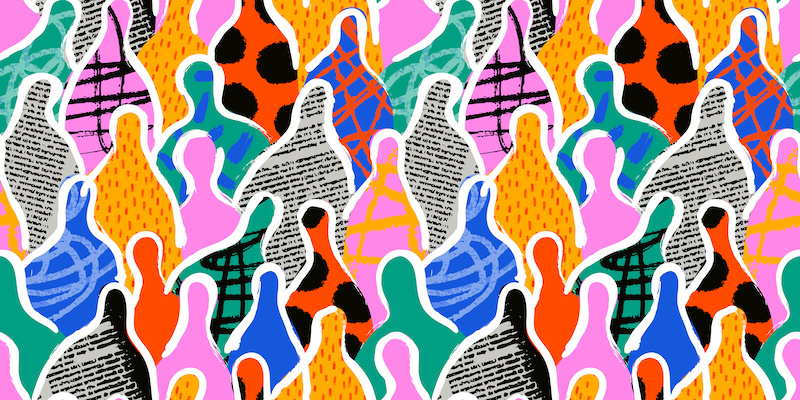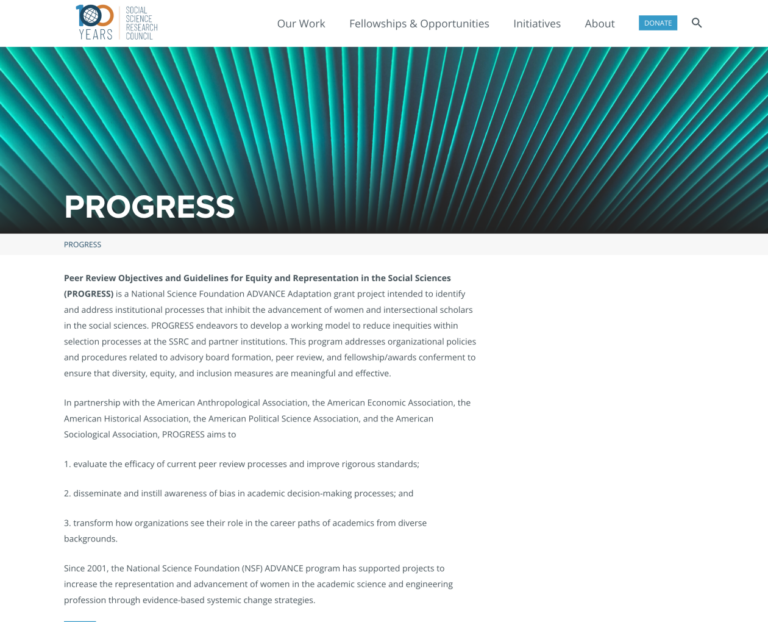Our Partners
Through the generous support of the Mellon Foundation, in 2022 SSRC launched the Research AMP Partner Sites project, a year-long partnership with four research groups to help them use RAMP to develop infrastructure for sharing their research. These platform sites are currently in development:
Partner sites

Cultural Constructions of Race and Racism Research Collective
Rayya El Zein (PI), Chris Alen Sula, Cultural Studies Association
We are a global network of media makers, scholars, and activists working to help our communities identify and dismantle colorism and anti-Black racism. We turn to local and regional media and popular culture as both archive and tool—an archive in which to trace culturally specific histories of representation; and a tool with which to raise awareness, mobilize, and inform. We prioritize perspectives grounded in local languages that are familiar with regional understandings of ethnicity, sect, religion, gender, and class—as well as race.
CcRrrC hosts these perspectives in a transnational, comparative frame. We do so because we understand that white supremacy is a global phenomenon that is manifest in specific vernaculars. Our work looks to support and sharpen tools available to communities as they combat colorism and anti-Black racism.
The CcRrrC is an initiative developed by the editorial team at Lateral, the open-access, peer-reviewed journal and digital production site of the Cultural Studies Association. Lateral invests in experimentation and collaboration among cultural studies researchers and practitioners and is committed to disrupting entrenched racial, gendered, abled, and classed hierarchies in scholarship. The CcRrrC platform is developed as part of Lateral’s editorial mission to design and execute initiatives that amplify marginalized voices and offer non-traditional paths to publication.

The Common Denominator
Amy O’Hara (PI), Margaret Haughney, Max Brossy, Georgetown University
From public health to public safety, children to elders, and urban to rural, population data form the “common denominator.” They are essential for epidemiological measures, risk ratios, and funding formulas and eligibility criteria for loans and programs. The users of population data need to understand its origins, production, and trends over time. The Common Denominator shares expert perspectives on census data and connects academic and industry experts. Our site shares information about uses of existing and novel data sources, generating awareness and discussion of methods to better measure our diverse population. Our site contains links to peer-reviewed and gray literature, popular press publications, news articles, expert commentary, and interviews that span topics in population measurement and demographics.The Common Denominator stimulates interdisciplinary collaboration, drawing diverse groups together around themes like the privacy-accuracy tradeoff and need for disaggregate data.

Play and Wellbeing
Lalitha Vasudevan (PI), Joe Riina-Ferrie (Co-PI), Haeny Yoon (Co-PI), Nathan Holbert (Co-PI), Christian Wu, Catherine Cheng-Stahl, Olu Animashaun, Teachers College at Columbia University
Children’s wellbeing is intimately linked with play—space to imagine and dream, revel in fantasy, manipulate materials, and explore. Children’s wellbeing serves as a canary in the coalmine for the wellbeing of the adults and affiliated social institutions in their lives: educators in schools, caregivers, social workers, and child welfare systems. Our Research AMP site will expand the public and scholarly imagination about play beyond children’s play to include wellbeing and to challenge normative expectations for play in our academic work and lives. We plan to aggregate research and expository accounts that live at the intersection of play and wellbeing and reflect a commitment to ‘narrative plenitude’ in both form and content. By curating multimedia digital content like the Pop and Play podcast alongside more traditional forms of research outputs and news articles, our Play and Wellbeing theme is more likely to reach a wider audience that includes key individuals who make decisions about play in the lives of young people.
Play and Wellbeing will launch in December 2023.

The Three R’s – Refugees, Rights, and Resettlement
Mansha Mirza (PI)
One in every 95 people have fled their homes due to persecution or violence. Displaced persons include refugees, asylum seekers and internally displaced persons. Refugees who manage to safely flee their country of origin seek stability in safe countries through the process of resettlement. With human displacement at a record high, public curiosity about refugees, their journey(s), and how they can be best supported continues to grow. The Three R’s is an online community of academic experts, researchers, and civil society representatives located in North America and Western Europe. Our shared mission is to produce and compile information on the psychosocial and community participation needs of refugees during and after resettlement. Our goal is for The Three R’s platform to become the go-to repository of credible and reliable information on this topic. The Three R’s is also a networking platform where professionals, academics, community organizations, activists, and policy makers come together to create, share, and disseminate informational resources on a variety of issues related to refugee resettlement.





